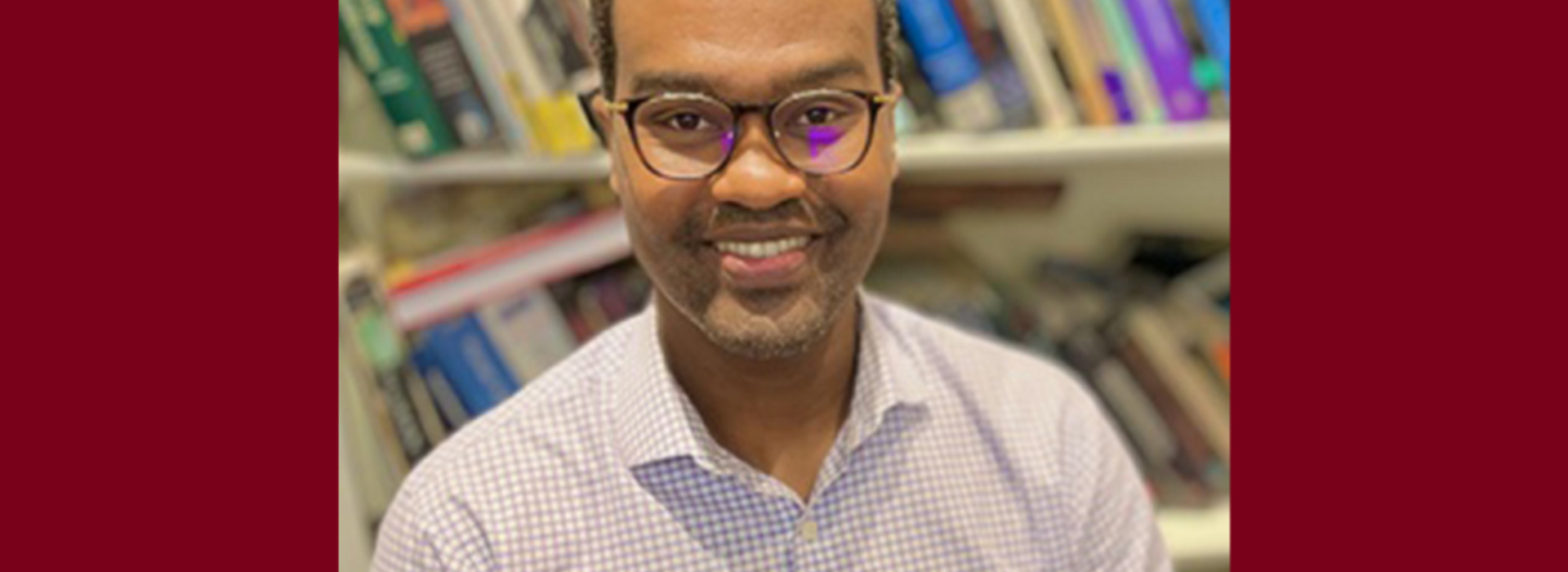
Neuroscientist and U of M alum Dr. Arif Hamid Contributes to Addiction Research in the State of Minnesota and Globally with the Medical Discovery Team on Addiction
When Dr. Arif Hamid, assistant professor in the Department of Neuroscience, joined the faculty at the U of M Medical School, he said it “felt like coming home.” Dr. Hamid received his undergraduate degree from the U of M in 2010 and returned 12 years later when he was recruited by Dr. Mark Thomas, professor in the Department of Neuroscience and director of the Medical Discovery Team on Addiction (MDTA). Dr. Hamid is also a Hanna Gray Fellow of the Howard Hughes Medical Institute and a Next Generation Leader at the Allen Institute.
“It feels good to be back,” Dr. Hamid says. “Minnesota has invested extensively in neuroscience.. Especially so in the discipline I study, which is adaptive decision-making, and how it breaks down in psychiatric, neurological, and substance abuse disorders.”
Dr. Hamid’s lab studies a neurotransmitter in the brain called dopamine. He seeks to understand how dopamine works in the brain to help us meet the demands of an ever-changing world and, conversely, how a dopamine imbalance can lead to issues like psychosis, bipolar disorder, OCD, addiction, and other disorders.
“Imagine the squirrel Scrat from 'Ice Age,' frantically searching for acorns in a barren landscape, compared to a well-fed squirrel on a university campus. These lean and rich environments, respectively, require the squirrels to solve the reward pursuit problem by weighing costs and benefits differently.” Dr. Hamid explains. “These contrasting behavioral strategies are coordinated by the same brain circuits, and an important question in neuroscience is how the circuit biology adjusts to help animals solve these problems. That’s what we study in the lab. Which brain circuits help us make economic assessments about the discounted value, effort, risk, or surprise of our plans? It turns out dopamine has royalty status in terms of regulating these functions. Its subtle disruption derails these processes and behavior.”
Dr. Hamid has made significant contributions to understanding the neural basis of decision-making through influential conceptual breakthroughs and empirical discoveries. His laboratory at the U of M is pioneering preclinical research to inform treatments for psychiatric and neurological disorders.
As part of his work with MDTA, a state-funded initiative to make rapid advancements in the understanding of addiction and relapse, Dr. Hamid is also interested in substance use disorders in East African community members.
“I have collaborations with African partners to study some drugs that are endemic in East African and Arabian peninsula areas,” he says. “Details about the brain mechanisms of these herbal stimulants and cross-generational influences are simply not prioritized by neuroscience research in the global west.”
Born and raised in Ethiopia, Dr. Hamid is passionate about not only bringing health solutions to Africa but also educating health professionals on the continent to tackle mental health disorders themselves.
“What I’m really interested in doing is empowering Africans to solve Africa’s problems, to help arm them with the necessary technical and conceptual knowledge to implement locally-tailored solutions.”
In addition to limitations in clinical and research capacity, a major challenge facing the African community, both in Africa and right here in Minnesota, is the stigma surrounding mental health.
“Mental health and substance abuse challenges are not thought of as other health problems, like diabetes or cardiac conditions. The stigma surrounding mental health problems compounds the significant and debilitating challenge they pose, often preventing individuals from seeking treatment and support.”
Dr. Hamid partners with universities in Ethiopia and South Africa that educate medical students and engineers. Through a collaboration with the Medical School’s Global Health Research Institute and a diaspora professional organization, International Oromo Health Professionals Association (IOHPA), Dr. Hamid helped organize a summit on Mental Health Awareness and Neuroscience Capacity Building in Ethiopia at Haramya University. Engaging academic, community, and policy stakeholders, this summit has served as a catalyst for local awareness programs tackling stigma, ongoing cross-continent clinical and research collaborations, equipment donation programs, and academic training opportunities.
Dr. Hamid also travels to Cape Town every January to direct the Imbizo Computational Neuroscience training course. Funded by the Simons Foundation, the four-week course aims to accelerate the development of neuroscience in Africa by providing immersive training in Computational Neuroscience and Machine Learning on the continent.
One of Dr. Hamid’s favorite parts of his job is his role as an educator and mentor to trainees at the U of M and beyond. He provides mentorship to local high school students through the Institute for Engineering in Medicine’s InspireTalks Program, the Luis Stokes North Star STEM Alliance, and UK-based Somali Academics. He also sits on the board of the Duluth Global Health Research Institute (DGHRI), where he has been inspired by the strong interest in global health and outreach among Medical School leadership. In recognition of his efforts, Dr. Hamid was awarded the Department of Neuroscience 2024 Faculty Award for Advancing DEI.
When it comes to guiding young scholars in his lab, classroom, or abroad, Dr. Hamid encourages students to lean into what science is all about.
“Most of the time, you’re navigating in the dark. To lose yourself, then find yourself again, over and over—that's the basic anatomy of problem-solving and the essence of science," he explains. "This philosophy guides my approach to mentoring the next generation of brilliant thinkers poised to address society's greatest challenges, encouraging them to leverage their expertise to empower and uplift their communities.”